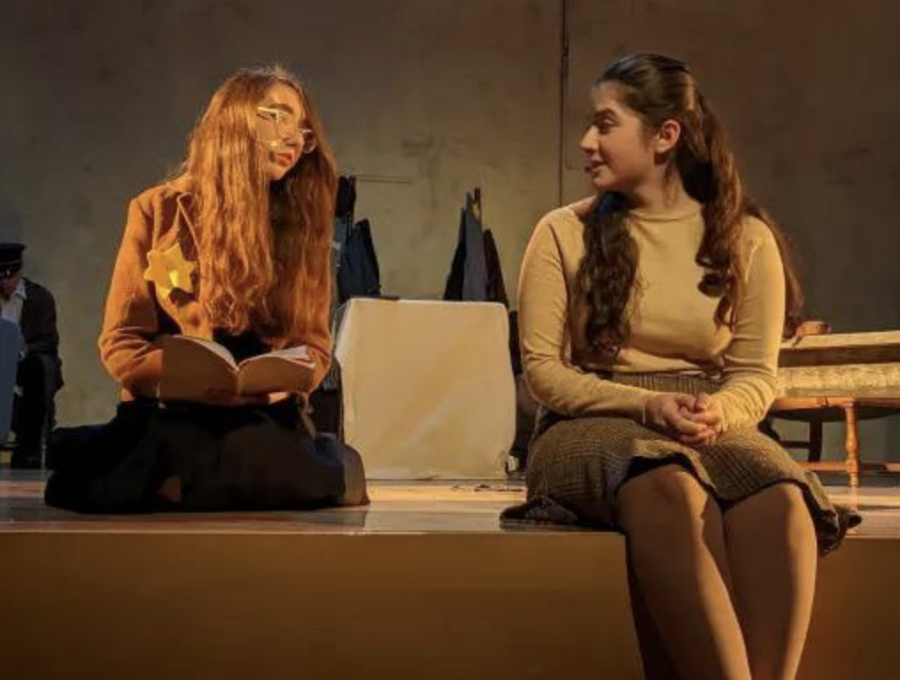Drama in Reaction to Fall Drama
The Fall play, Letters to Sala, ended with a punishment for the entire student body. Due to disrespectful behavior, including geering, talking, and students being on their phones, privileges were taken away from all grades for one week. Were these consequences justified, and how should the school handle live theater in the future?
Letters to Sala, a story about a young girl who lives through and keeps the letters sent to her during the Holocaust, was not a typical high school production. “In the past, Ramaz has put on performances of Aladdin, Legally Blond, and other light-hearted shows,” says Aliza Teller ’23. “Putting on such a somber story in front of the entire student body was a recipe for disaster. Some kids are not emotionally mature enough to be able to handle such sensitive topics. Rabbi Bodner even spoke to some of the seniors before the performance to make sure we behaved ourselves.” According to Mr. Brooke, the staff director of the performance, this play was chosen due to its meaningful story and its ability to be portrayed by the small cast size of only six people. Even with the plot’s interchangeability, actors were forced to play four to five parts, confusing many in the audience. Abby Gurwitz ’23, student leader of the theater department, semi-expected the audience’s reaction: “Many of the people in the play from the beginning were concerned about putting it on in-front of the entire school. There was only one male actor and he played all of the main characters’ love interests. It got to the point that every time he tried to open his mouth students would start oohing and awing.”
Alissa Rose, ’24, who joined the cast only a week before the show, felt that her acting was not affected by the audience’s behavior. “I performed as I normally would. I was not paying attention to the audience’s reaction,” said Rose ’24. The administration, however, definitely noticed the behavior. Individual grades were spoken to after morning davening, and students were restricted from leaving the Ramaz building during school hours for one week. Rabbi Schiowitz noted, “Overall, we (the administration) were extremely disappointed in the behavior of the student body at the play. The cast was not given the respect that they deserved. We know that Ramaz students are better than this. Privileges are a privilege we have recently been expanding. However, they need to be earned and deserved.”
The student body had mixed reactions to the faculty response. “It wasn’t all students misbehaving, and it is not fair to punish all of us due to a couple of outliers,” said Romi Chaovat ’24, who enjoys using her Junior year privileges to grab coffee at Dunkin Donuts during her free periods. Even Gurwitz ’23, one of the actors in the performance and directly affected by the action, who should have a say in the punishment, argued that revoking privileges did not make a lot of sense. “Taking away privileges and fixing students’ behaviors are two entirely different concepts. The administration’s reaction will not help solve this problem from happening in the future,” said Gurwitz ’23.
Although not given specific details, the Rampage reported that the administration is making serious changes to the theater department, even going so far as to completely reorient how performances are shown at school. “We are considering different ways to structure the spring musical so that it will be more conducive to better decorum (possible ideas include making the performance optional or perhaps the musical being seen grade by grade rather than the entire school together). We have not yet made a decision, and nothing is off of the table. If students have suggestions, we are very much eager to hear them,” said Rabbi Schiowitz. With supposedly shrinking student theater involvement, many interviewed for this piece wondered if there are even enough interested students to form a coherent group of actors for the spring performance. It is unclear which staff member will be in charge of the live shows going forward, with Rabbi Schiowitz stating, “We definitely intend to have a spring musical, and we are currently ironing out some of the staffing so that it will be fully supported.”
Student’s behavior during the play produced a school-wide punishment from the administration with the restructuring of live in-school productions going forward.



